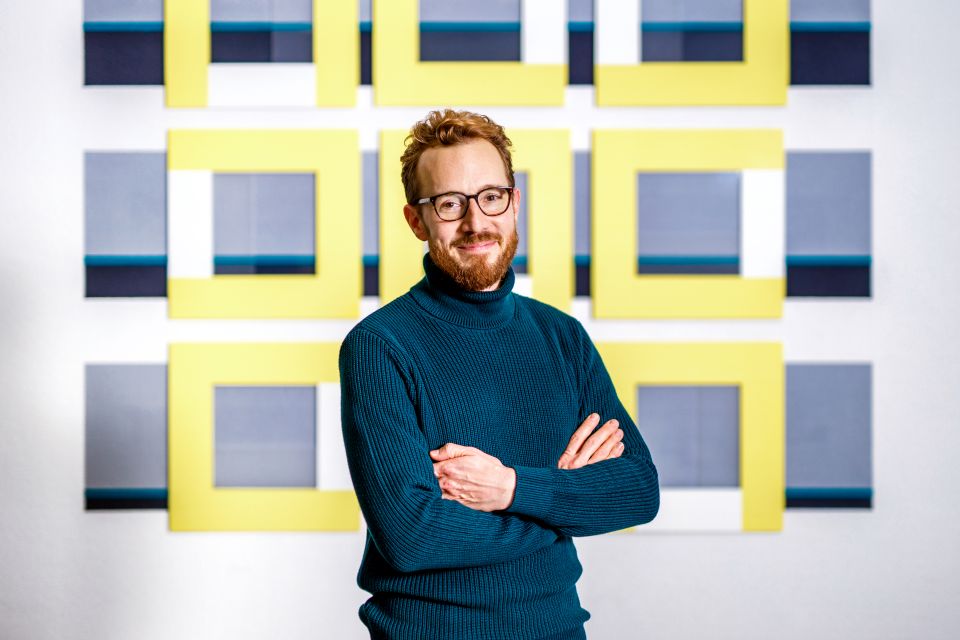-
Inspired research
-
Chronic inflammation of the bile ducts damages the liver. So far no cure has been found. Attending physician Joachim Mertens is looking for the causes and a therapy for the condition.
-
 “Art makes my research more creative.”
“Art makes my research more creative.”Researchers don’t always come up with their most creative ideas in the lab. Sometimes it’s good to get a bit of distance. When he’s looking for new approaches in his research, Joachim Mertens likes to seek inspiration from art. As the attending physician at the Department of Gastroenterology and Hepatology at University Hospital Zurich, he’s particularly interested in the liver. “It’s the most beautiful organ in the human body,” he enthuses. He’s fascinated by the many different functions the liver performs, as well as by the fact that it can regenerate. But Mertens is also well aware of the threats to which the liver is exposed: “The incidence of fatty liver and liver cancer, for example, is increasing dramatically all over the world.”
Many questions about conditions of the liver remain unanswered. Joachim Mertens is focusing on a rare disease that damages the liver: primary sclerosing cholangitis (PSC). It’s characterized by chronic inflammation of the bile ducts in the liver. This leads to scarring and even sclerosis. Patients also run the risk of contracting biliary tract or liver cell cancer. So far, no cure has been found. Around two-thirds of patients need a liver transplant as the disease progresses.
An estimated 200 people suffer from PSC in Switzerland. Most of those who contract it are men aged between 30 and 50. The cause of the disease remains unexplained. But Joachim Mertens’s research has revealed the important role played by the interaction between immune cells with cells in the connective tissue.
Now the researchers want to investigate this interplay more closely and look into possible starting points for new therapies. Thanks to a gift from Canica International to the USZ Foundation, Joachim Mertens can devote part of his time to PSC research. The Swiss National Science Foundation is funding the requisite lab infrastructure and enabling him to expand his research group.
Joachim Mertens firmly believes that “the example of this rare disease could lead to basic insights into the connections between chronic inflammation, tissue scarring, and the generation of tumors.” Ideally it will be possible to apply this knowledge and new therapeutic approaches to organs such as the lung and intestines as well, also to the benefit of patients.
100% financed

-
-
Project management
-
-

PD Dr. Joachim Mertens
Attending Physician
Department of Gastroenterology and Hepatology
University Hospital Zurich
-
-
Collaboration
-
-
Institute of Experimental Immunology, University of Zurich
German Cancer Research Center, Heidelberg, Germany
Mayo Clinic, Rochester, USA
-
-
Supporting partner
-
-
Canica International
